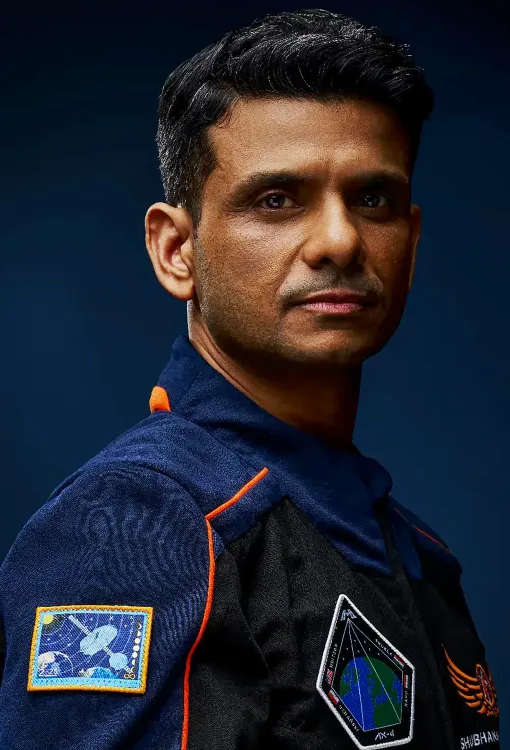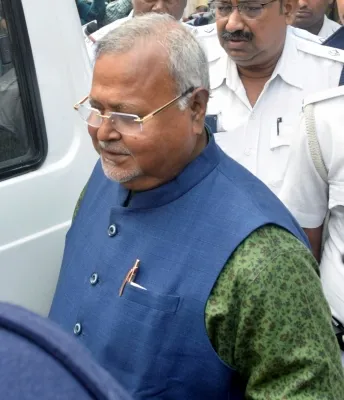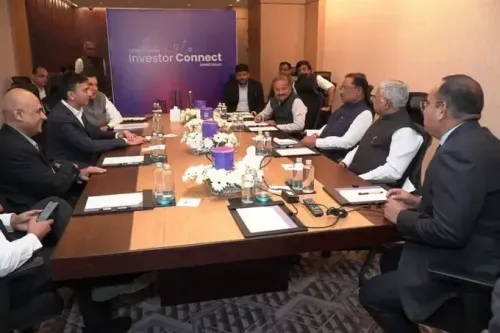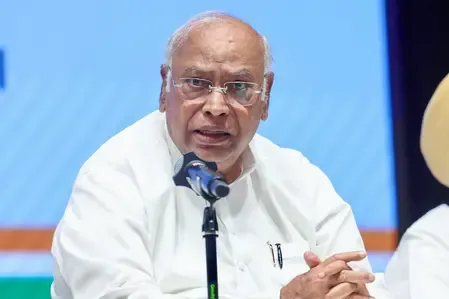Is Shubhanshu Shukla's Mission to ISS a Landmark for a Developed India?

Synopsis
Key Takeaways
- Shubhanshu Shukla is the first Indian astronaut in space after 41 years.
- The mission supports India's Gaganyaan program.
- Private sector involvement is crucial for India's space industry.
- Shukla's journey can inspire future generations in science and technology.
- Rigorous astronaut selection ensures only the best candidates are chosen.
New Delhi, June 25 (NationPress) IAF Group Captain Shubhanshu Shukla embarking on a mission to the International Space Station marks a significant milestone towards achieving a developed India, stated Dr. Jitendra Singh, Union Minister of State (Independent Charge) for Science and Technology on Wednesday.
Born in Lucknow, Shukla launched to the ISS at 2:31 a.m. EDT (12 noon IST) from Launch Complex 39A at NASA’s Kennedy Space Centre in Florida, aboard a cutting-edge SpaceX Dragon spacecraft on the Falcon 9 rocket.
This successful mission signifies that India will have its first astronaut in space after 41 years. Shukla will be the first Indian to visit the orbiting laboratory and the second Indian ever in space, following Rakesh Sharma's flight in 1984.
In an interview with IANS, Singh credited Shukla’s journey to the government’s reforms and initiatives, particularly the opening of the space sector to private enterprises.
“I believe that Shubhanshu Shukla’s mission to space represents a significant leap towards the developed India vision set by Prime Minister Narendra Modi. This was made possible through space reforms that allowed private sector participation and shaped the industry comprehensively,” Singh remarked.
Shukla was chosen as one of 12 finalists by PM Modi for the Gaganyaan Mission and later selected as one of the four astronauts for Axiom Space’s Mission-4 to the ISS.
IN-SPACe Chairman Pawan Kumar Goenka mentioned that Shukla’s ISS journey will provide significant insights for India’s own human spaceflight program, Gaganyaan.
“The government determined that having one of our astronauts participate in the Axiom-4 mission would be invaluable as a precursor to India’s human spaceflight. Thus, IAF Group Captain Shukla, one of our Gaganyaan astronauts, was selected,” Goenka explained.
Shukla’s mission “will allow ISRO to gain vital knowledge regarding human spaceflight, and his actual experiences in space will be extremely beneficial,” he added.
Scientist P.K. Ghosh called this event “a moment of immense pride for India,” noting that Shukla might also perform spacewalks during his 14-day mission, which can be extended up to 21 days.
Retired ISRO senior scientist Sivasubramanian elaborated on the rigorous selection process for astronauts assigned to such missions.
“An astronaut must withstand intense shocks, vibrations, extreme temperatures, and navigate complex flight paths. They need to be pilots with not only physical stamina but also strong mental capabilities to operate in isolation with limited communication. Additionally, they should be adept at conducting experiments. Their role goes beyond travelling to space; they must also execute significant scientific tasks,” Sivasubramanian informed IANS.
He encouraged the younger generation to draw inspiration from Shukla’s space mission and nurture a deep passion for science and technology.
Shukla serves as the pilot of the mission alongside Commander Peggy Whitson from the US.
The other crew members are Slawosz Uznanski-Wisniewski from Poland and Tibor Kapu from Hungary, both acting as mission specialists.
He is anticipated to dock at the orbiting laboratory around 4:30 p.m. IST on June 26.








